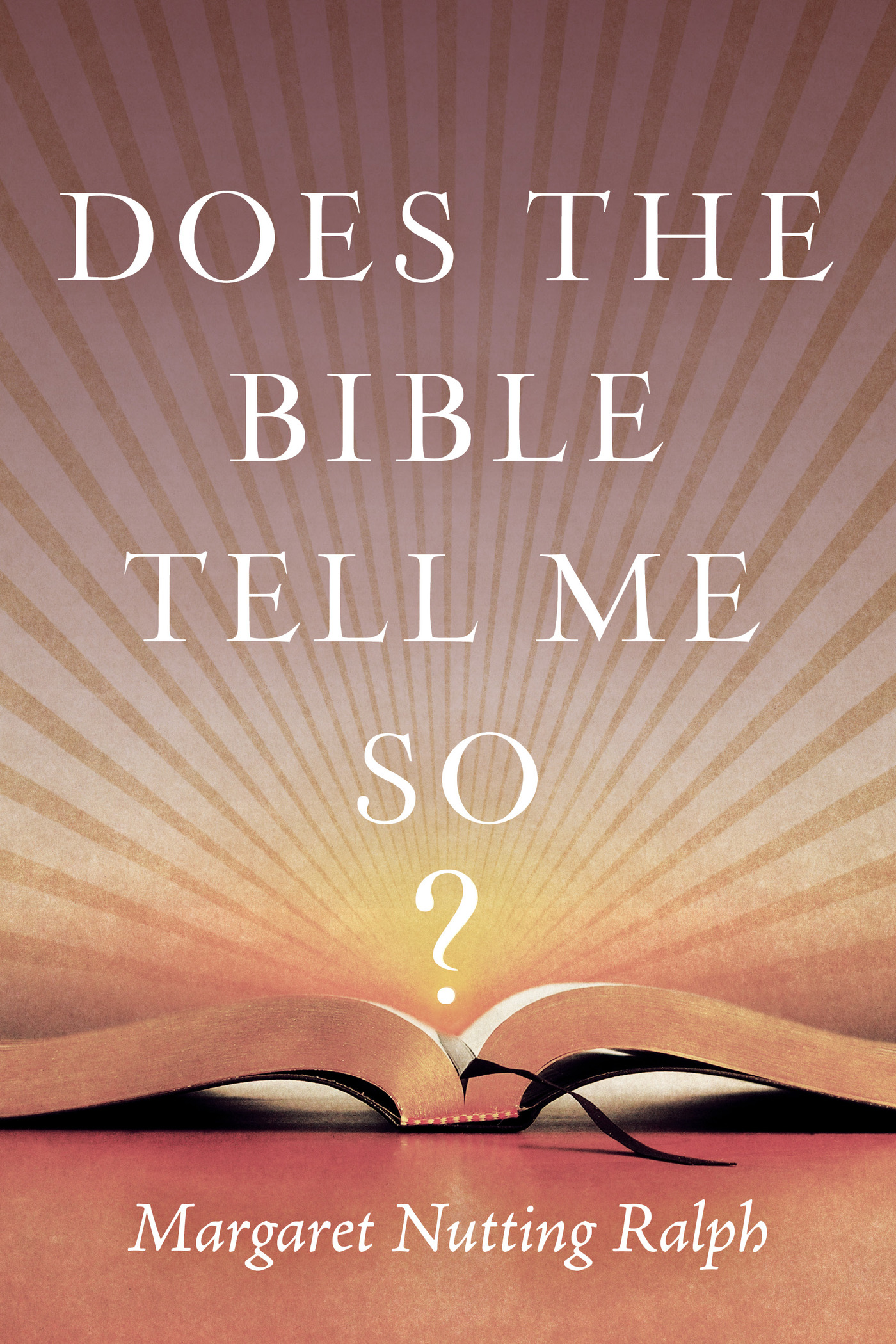Does the Bible Tell Me So?
Does the Bible Tell Me So?
Margaret Nutting Ralph
ROWMAN & LITTLEFIELD
Lanham Boulder New York London
Unless otherwise noted, scripture texts in this work are taken from the New Revised Standard Version with Apocrypha, copyright 1989, by the Division of Christian Education of the National Council of Churches of Christ in the United States of America.
Published by Rowman & Littlefield
An imprint of The Rowman & Littlefield Publishing Group, Inc.
4501 Forbes Boulevard, Suite 200, Lanham, Maryland 20706
https://rowman.com
6 Tinworth Street, London SE11 5AL, United Kingdom
Copyright 2019 by The Rowman & Littlefield Publishing Group, Inc.
All rights reserved. No part of this book may be reproduced in any form or by any electronic or mechanical means, including information storage and retrieval systems, without written permission from the publisher, except by a reviewer who may quote passages in a review.
British Library Cataloguing in Publication Information Available
Library of Congress Cataloging-in-Publication Data
Names: Ralph, Margaret Nutting, author.
Title: Does the Bible tell me so? / Margaret Nutting Ralph.
Description: Lanham : Rowman & Littlefield Publishing Group, Inc., 2019. |
Includes bibliographical references and index.
Identifiers: LCCN 2019011549 | ISBN 9781538129609 (cloth : alk. paper)
Subjects: LCSH: Bible--Criticism, interpretation, etc.
Classification: LCC BS511.3 .R35 2019 | DDC 220.6--dc23 LC record available at https://lccn.loc.gov/2019011549
 TM The paper used in this publication meets the minimum requirements of American National Standard for Information Sciences Permanence of Paper for Printed Library Materials, ANSI/NISO Z39.48-1992.
TM The paper used in this publication meets the minimum requirements of American National Standard for Information Sciences Permanence of Paper for Printed Library Materials, ANSI/NISO Z39.48-1992.
This book is dedicated to two gifted scholars, teachers, and authors:
Raymond Brown, who taught us to understand the meaning, the wisdom, the revelation in Scripture.
Teilhard de Chardin, who taught us to see the innate unity and holiness in all of creation, especially in all human beings.
Each helped us better understand how we are to live and who we are called to become, thus making us more attentive to Jesuss words: By this everyone will know that you are my disciples, if you have love for one another. (John 13:35)
Acknowledgments
In my previous books, my acknowledgments have thanked fellow professionals in religious education, publishers who helped me along the way, and family and friends who supported me. These acknowledgments are different. I wrote three-fourths of this book four years ago. Three years ago my husband, Don, whom in previous books I have always thanked for his love and unfailing support, suffered a traumatic brain injury. Wonderful health-care workers at Baptist Health and at Cardinal Hill Rehabilitation Hospital in Lexington, Kentucky, nursed him back to health over two years of patient and loving care. My deepest gratitude goes to each and every one of them. In addition, I would like to thank Sarah Stanton, my first editor at Rowman & Littlefield, and Rolf Janke, my present editor at Rowman & Littlefield, for their continued interest in this project despite my long delay in completing it. Thank you, one and all, for helping to make Does the Bible Tell Me So? become a reality.
Introduction
First Verse:
Jesus loves me. This I know,
For the Bible tells me so;
Little ones to him belong,
They are weak, but he is strong.
Refrain:
Yes, Jesus loves me.
Yes, Jesus loves me.
Yes, Jesus loves me.
The Bible tells me so.
This first verse of the poem Jesus Loves Me, by Anna Bartlett Warner (1860), and the refrain, written by William Batchelder Bradbury when he turned the poem into a hymn (1862), make up one of the most beloved and well-known childrens songs throughout the English-speaking, Christian world.
The Bible tells me so. One might think that this statement would settle many an argument for Christians who accept the authority of the Bible. However, it doesnt. Why not? Because Christians do not all agree on how to interpret the Bible. Some totally committed Christians are fundamentalists: they do not always consider context when determining meaning. Other totally committed Christians are contextualists: they do consider context before determining meaning. This difference in method of interpretation leads to a difference in conclusions, a difference in beliefs about what the Bible actually teaches.
The division between fundamentalists and contextualists is not a disagreement about whether Scripture is revelation, biblical authors are inspired, or Scripture is a living word that can cut to the marrow of the bone. The disagreement is simply about how to interpret Scripture so as to correctly understand the revelation that both fundamentalists and contextualists claim is there.
The fundamentalist/contextualist controversy is not a disagreement between denominations, but within each denomination. Even if a church officially teaches the contextualist method of interpretation, as does the Catholic Church (see the Second Vatican Council document Dei Verbum), that does not mean that all members of that church know and follow this teaching.
The topic of how to interpret Scripture so as to correctly understand what it teaches is extremely important, not only for denominational unity and unity among Christian denominations, but for civil dialogue and peaceful decision making in our local communities, our states, and our countries. This issue has been of great importance in the past, is now, and will continue to be important in the future. It is an undeniable fact of history that the Bible has been used to support practices that very few of us would support today, such as validating slavery or denying women the right to vote. Surely, we do not want to make that same mistake today when discussing contemporary civil rights issues.
It is my own belief that we could have avoided abusing Scripture in the past, and we could avoid abusing Scripture in the present and in the future, simply by asking ourselves a simple question: Is the inspired author I am quoting when I use Scripture to make a point addressing the same topic that I am using the passage to address? If the answer is no, then we should not use that passage to add authority to our own conclusions.
How are we to determine the intent of the original inspired author? In order to correctly discern what the author is teaching, we must consider his words within several contexts: the literary form or kind of writing that the author has chosen to use, the beliefs at the time of the original author and audience, and the two thousand-year process of ongoing revelation that is modeled for us in Scripture.
In this book, I will first briefly explain each of the three contexts that we must consider in order to understand a biblical authors intent. I will then apply this method of interpretation to some historical issues, demonstrating just how the Bible was abused to support the deep-seated prejudices of well-meaning people. Since most readers will agree on these issues, they will more readily understand that the biblical texts were misused. With this knowledge firmly in hand, I will then turn to some contemporary issues, applying the same method of interpretation, in order to examine if Scripture is being used or abused in these contexts.
Next page
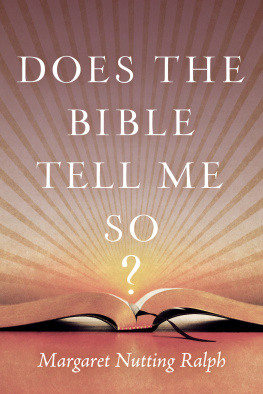
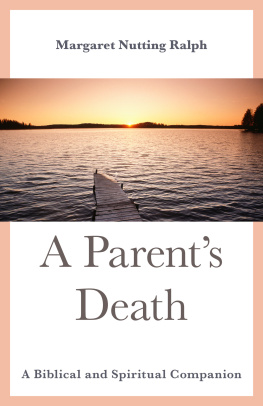
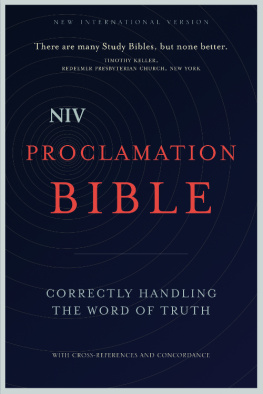
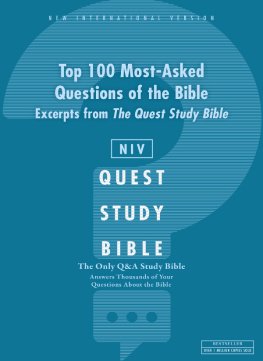
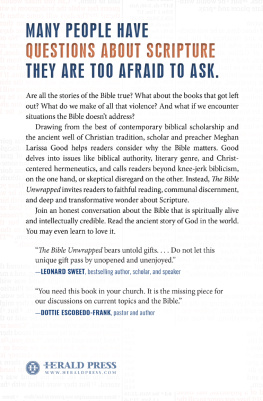
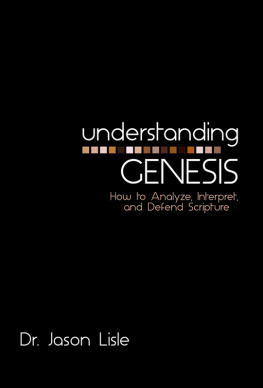
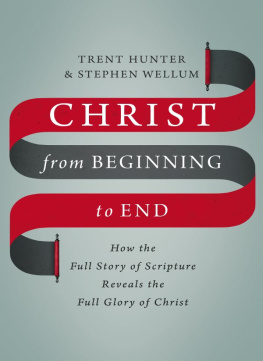

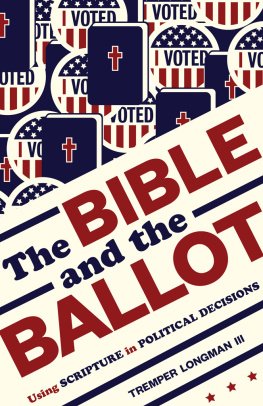
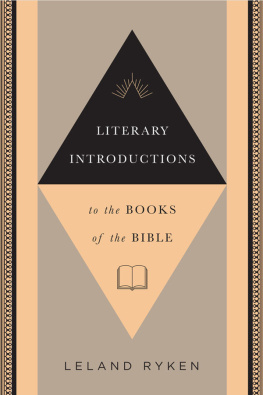
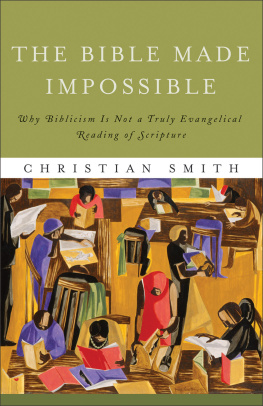
 TM The paper used in this publication meets the minimum requirements of American National Standard for Information Sciences Permanence of Paper for Printed Library Materials, ANSI/NISO Z39.48-1992.
TM The paper used in this publication meets the minimum requirements of American National Standard for Information Sciences Permanence of Paper for Printed Library Materials, ANSI/NISO Z39.48-1992.